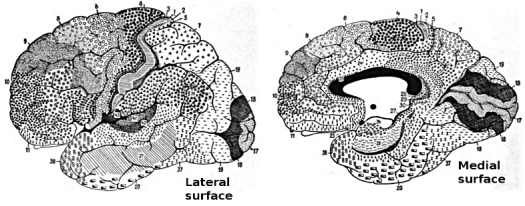
Here is Korbinian Brodmann (of cortical Brodmann area fame) writing about a trend towards assigning functional roles to single neurons based on anatomical type, back in 1909:
“There has been occasional talk of “sensory cells” located in particular regions, or of sensitive or sensorial “special cells”. People have invented acoustic or optic special cells and even a “memory” (*12) cell, and have not shied away from the fantastic “psychic cell”. Apart from the fact that such so-called “special cells” have only been described in young or foetal brain with the Golgi method and mainly only in animals, and therefore lack confirmation in the adult human brain, and quite apart from the fact that no attempt has been made to determine the precise regional location of the zone within which such cells appear exclusively, it seems to me that to pose this problem is wrong.” [emphasis added]
And here is a news item from a couple of years ago:

Psychic cells indeed! Or perhaps we should call them zombie cells.
(Zombie concepts keep coming back from the dead to eat our brains. Other examples include ‘selfish genes’ and ‘pleasure molecules’.)
